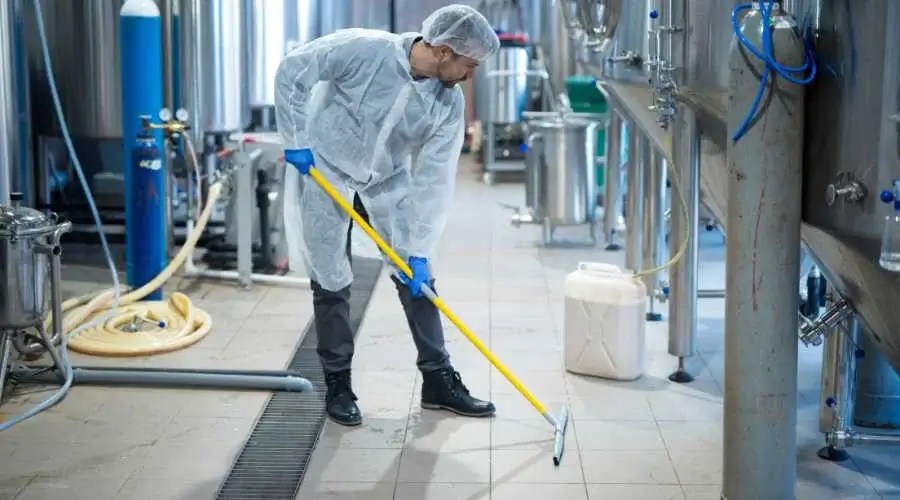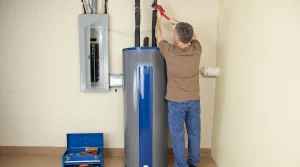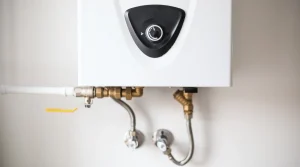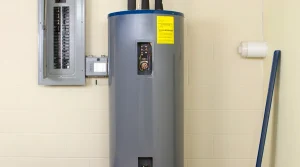Most floor drains may need to be noticed. Floor drains aren’t only present in public toilets and showers; you may also find them in a garage, laundry room, and industrial kitchen. They are a crucial aspect of public sanitation that is sometimes disregarded. Commercial floor drains properly direct overflow from rain, toilets, sinks, tubs, showers, and other similar fixtures to a sewer or public storm drain. Doing this keeps the floor clean and dry, and flooding is prevented in the rooms.
Commercial floor drains must be maintained, nevertheless, in order to function properly. A blocked gutter will not work correctly and create a more incredible mess, while a dried-out drain may emit unpleasant aromas. Proper drain maintenance is required to maintain your business drains in excellent functioning order.
5 Tips for Commercial Floor Drain Maintenance
1. Soap Water Does Wonders
Sometimes all you need to maintain your industrial floor drains is a bucket of soapy water. Commercial drains in the floor might dry up if the flooring next to the blocked drain is not frequently wiped. Pour a five-gallon bucket full of soapy water down the drain to prevent it from drying out or to check for clogs.
This will not only stop the drain from drying out but also show if a blockage is developing. The need for a drain cleanout may be indicated by water that drains slowly.
2. Avoid Dried Up Commercial Floor Drains
Your business drains must stay dry, as was discussed before. A component of your sewer system is your floor drains. They assist in facilitating the passage of excess gas and overflow into the central sewage system. Commercial floor drains contain U-shaped P-trap pipes designed to retain water, like a bathroom sink, which serves as a wall to stop sewer gasses from rising via the drain. If there are any unpleasant scents, the water trap has dried up, allowing the pollutants to escape.
As indicated, this may be prevented by routinely cleaning the drain traps with a bucket of soapy water. Any offensive smells should be eliminated by adding water.
3. Avoid Accidentally Plugging Your Commercial Floor Drains
The material may get blocked when it is purposefully swept into your drains. With food leftovers, this is also useful in industrial kitchens. Commercial floor drains are more susceptible to clogging than other drains since they are located on the floor in places where a lot of dirt and debris may accumulate. Your maintenance workers could be tempted to sweep all this trash down the drains deliberately, but doing so might result in an internal buildup of debris and a blocked drain or even a worse issue.
Avoid sweeping debris like food, dirt, and other trash into your business floor drains.
4. Don’t Ignore Stock Room Drains
Drain cleaning shouldn’t be disregarded even in stock rooms or other mostly inactive locations. These industrial drains still need to be cleaned! They may become debris-filled and dry over time, causing your sewage line to clog. Although they are simple to prevent, clogs may be problematic and costly to treat.
These drains will stay dry and in excellent shape if workers sweep even vacant stock rooms once every few weeks or once a month.
5. Regular Floor Drain Cleaning
The most significant defense against potentially costly and uncomfortable problems is preventative treatment. The most straightforward approach to maintain floor drain maintenance is to clean your business drains once a month. You may eliminate the chance of blockages and other problems by marking your calendar at the end or beginning of each month to clear your drains.
Your commercial drains can operate as effectively if you care for them. A floor drain blocked with debris and grime is not working correctly. Maintaining a floor drain maintenance routine ensures that your gutters are operating correctly and aren’t a hassle.
Unsure Of How To Clear A Clogged Floor Drain? Obtain Professional Assistance
A drain snake or auger and some soapy water may be used to clear obstructions during essential drain maintenance. There are certain obstructions. Nevertheless, that needs expert assistance. Additionally, consider having your industrial floor drain pipes checked by a professional at least once a year.
Professional plumbers are far more likely than average homeowners to recognize warning indicators of drain performance problems, such as potentially significant obstructions or leaks. Depending on the metal you choose and the materials of your pipes, we can also advise you on how to maintain your business drains. Commercial drains often employ stainless steel, ductile iron, cast iron, nickel, bronze, plastic, and other materials. Each will need different things.
This may assist business establishments in averting complete plumbing and pipe catastrophes. In commercial plumbing, prevention is vital, and although there are many things you can do to maintain your floor drain maintenance and care for your drain pipes, having a skilled plumber visit your site once a year may be a significant benefit. Contact the professionals at BJC Clifton Plumbers if you want assistance with a challenging blockage, a business floor drain installation, or a thorough examination of your floor drain pipes.




